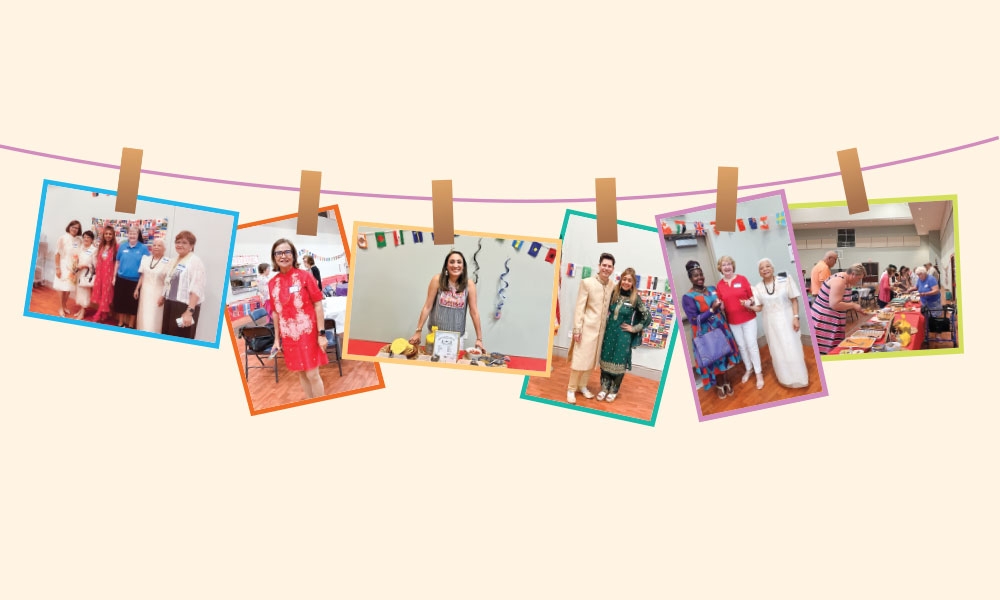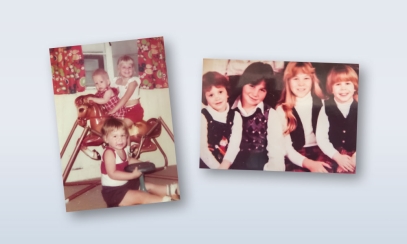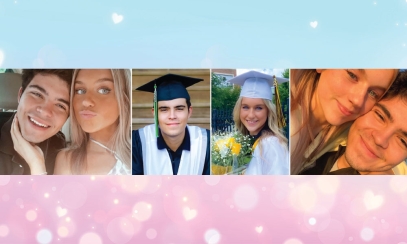
Celebrating international friendship
Jesus ate with tax collectors and sinners. He talked about worship with a woman who had had five husbands and had, as they spoke, a current live-in. Jesus made one of her compatriots, a Samaritan (considered the natural enemy of the day), the hero of a parable. And he called rough-and-tumble fishermen, a political activist, a youth, and a dreamer whom he saw sitting under a fig tree, as his apostles.
Jesus ate with tax collectors and sinners. He talked about worship with a woman who had had five husbands and had, as they spoke, a current live-in. Jesus made one of her compatriots, a Samaritan (considered the natural enemy of the day), the hero of a parable. And he called rough-and-tumble fishermen, a political activist, a youth, and a dreamer whom he saw sitting under a fig tree, as his apostles.
Obviously, one of the things which Jesus modeled was the gift of perceiving the good that lay within — under simple externals, under layers of bravado, under reputations, under public perceptions and misperceptions. He read the secrets of people’s hearts. With that ability, he was able to elicit what was wholesome and holy in their impulses and hopes. He could see through to what Matthew Kelly has called “the best version” of themselves.
None of us wants to admit that we have prejudices. However, it seems inevitable that, because of upbringing and limited exposure to people unlike ourselves, we tend to prejudge. We all know the stereotypes, and, while our faith urges us not to succumb to them, the chances are strong that we do. Think of the conclusions we may reach about people displaying extensive body art and body piercings. Or what about their manner of dress? Or evident age? Or ethnicity? Or accent? Or weight? Or religious persuasion? When we hear the phrase “children of God,” do we instinctively picture people in our own image and likeness and leave out others?
In the aftermath of World War I, the British novelist and poet Thomas Hardy wrote The Man He Killed. It is a short, ironic and poignant lyric in the voice of a man who has killed an enemy infantryman and realized that, in another situation, he might well have sat down with him and treated him to a drink at a pub. When I travel in ecumenical and interfaith circles, I often find that there is an emphasis on table-sharing. People are invited by the Atlantic Institute to learn about the cuisine of many cultures. During Interfaith Harmony Month, religious groups in Greenville, Columbia, Aiken, Charleston, Sumter and Hilton Head host open house gatherings which include sampling foods or partaking of whole meals. In some ways, these events illustrate Hardy’s point about peacemaking.
There is something about getting to know people in a setting where there is good food and congeniality. What we most often find is that we have far more in common than we have dividing us. We may not see the world and God in the same ways, but we all do seem to value family, faith, good deeds, good work, simple pleasures, security and peace.
Amid the pandemic, inspired by an initiative of the Fellowship of South Carolina Bishops, a group formed in Bluffton at St. Gregory the Great Church. Its initial mission was confronting hate — and particularly racial bias and hatred. From an online discussion group, it soon evolved into an active group holding live meetings and events. It took on the name Catholics for the Common Good. Its purposes are the promotion of racial understanding, care for the environment and education in basic principles of Catholic social teaching.
For four years now, our group has sponsored a potluck on or around International Friendship Day, which was established by the United Nations in 2011. This year, once again, the potluck will take place at St. Gregory the Great on Wednesday, July 30.
In past years, we have drawn members of our parish and neighbors from the ecumenical community, who have donned ethnic costumes, brought special dishes and enjoyed conversation with one another. We have had participants who themselves, or a generation or two back, arrived here in South Carolina from Norway, Nigeria, Mexico, the Philippines, Germany, Ireland and India, to name a few. Members of Campbell Chapel African Methodist Episcopal Church in Bluffton, Lowcountry Presbyterian and the Latter-Day Saints Church in Hilton Head have joined us for this event, as they have with many others — interfaith dialogues at a synagogue, fundraisers and prayer for Ukraine, the annual Walk for Water, Martin Luther King, Jr. Day ceremonies and days of prayer for special causes. This year, we will send invitations to 15 or more faith communities.
What we notice as we have gotten to know one another is that when we next meet there are warm greetings and hugs. I’ve felt the warmth in reunions with ministers and parishioners from Campbell Chapel AME at an outdoor National Day of Prayer observance, prayer with Presbyterian and Methodist friends at the beginning of the Walk for Water and crossing paths at a grocery store or a local office. Once a hospitalist who was treating one of our sisters reminded me that we had first met when he and his
family attended our international potluck.
I think the Lord would wholeheartedly applaud such events. Some call them “friend-raisers.” Jesus did, after all, remind the apostles at the Last Supper that he was calling them friends. We celebrate Independence Day this month, the same month in which the global community marks International Friendship Day. May we here in the U.S. pray that we open our hearts to someone whom we know only in terms of a category. May we spend a bit of time sharing our stories, breaking bread and, if so desired, sharing a drink — iced tea, lemonade, coffee, cola, water or, à la Thomas Hardy, a brew. That will go a long way toward confronting hate and repairing the world.
Sister Pamela Smith, SSCM, Ph.D., is the diocesan director of Ecumenical and Interreligious Affairs. Email her at psmith@charlestondiocese.org.



